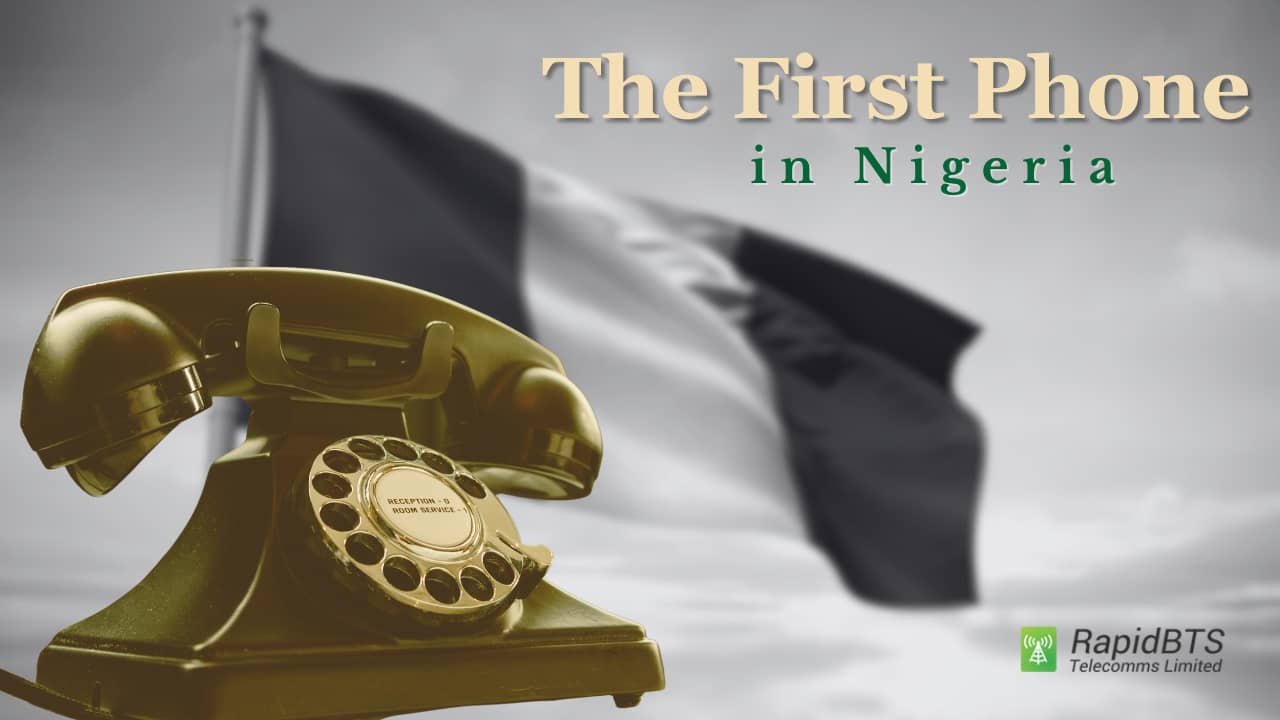The First Phone in Nigeria: Its Birth and Evolution
Step back to Nigeria in the early 2000s, a period of rapid technological advancement, and witness the captivating story of Africa’s most populous country embracing modern communication. In a world on the brink of a mobile revolution, Nigeria’s first phone, an innovation that sparked immense societal change, takes centre stage.
This device facilitated communication and symbolized progress, empowerment, and connectivity for millions. This revolutionary tool’s introduction transformed how Nigerians connected, conducted business, and accessed information, leaving an indelible mark on the nation’s history.
The evolution of communication in Nigeria
Nigeria has a rich history and diverse culture and has always been a hub of communication and exchange. Traditional methods of communication, such as drumming, storytelling, and written messages, were prevalent across various regions.
However, with the dawn of the digital age, Nigeria’s communication landscape underwent a monumental shift. The introduction of telecommunication infrastructure paved the way for a new era of connectivity, setting the stage for the arrival of Nigeria’s first phone.
The demand for improved communication solutions grew as Nigeria embraced globalization and economic development. The existing communication infrastructure faced challenges in meeting the needs of a rapidly evolving society.
This prompted a search for innovative solutions that would enhance connectivity within the country and position Nigeria as a player in the global communication landscape. The stage was set for the birth of Nigeria’s first phone, a device that would revolutionize how Nigerians communicated and interacted with the world.
The birth of Nigeria’s first phone
In the early 2000s, Nigeria’s telecommunication sector witnessed a significant milestone with the launch of the country’s first indigenous mobile phone. This groundbreaking achievement resulted from a collaboration between local engineers, entrepreneurs, and telecommunications experts who shared a vision of empowering Nigerians through enhanced connectivity.
The development and production of the first phone represented a triumph of Nigerian innovation and ingenuity, marking a significant leap forward in the country’s technological capabilities.
The introduction of Nigeria’s first phone not only symbolized technological progress but also served as a testament to the determination and resilience of the Nigerian people. The device, tailored to meet the specific needs of the local population, offered features that resonated with consumers, making it a symbol of national pride.
As the first phone debuted in the market, it captured the imagination of Nigerians, sparking a wave of enthusiasm and anticipation for the possibilities it held for transforming their daily lives.
Impact of the first phone on communication in Nigeria
The arrival of Nigeria’s first phone profoundly impacted communication patterns and behaviours nationwide. It revolutionized the way Nigerians connected with family, friends, and business associates, transcending geographical barriers and bringing people closer than ever before.
The newfound accessibility to mobile communication empowered individuals to stay informed, conduct business transactions, and seek assistance during emergencies, enhancing overall quality of life.
The first phone also contributed to the digital inclusion of previously underserved communities, bridging the gap between urban and rural areas. Its widespread adoption facilitated the exchange of information, knowledge sharing, and access to essential services, laying the groundwork for socioeconomic development and empowerment.
Furthermore, the first phone played a pivotal role in fostering a sense of unity and cohesion among Nigerians, as it became a standard tool for expressing cultural heritage, sharing experiences, and mobilizing communities for various causes.
Challenges and triumphs in introducing the first phone
The journey to introduce Nigeria’s first phone was not without its share of challenges and obstacles. From navigating regulatory requirements to establishing a robust distribution network, the pioneers behind the initiative encountered hurdles that tested their resolve.
However, their unwavering commitment to realizing the vision of a locally manufactured mobile phone fueled their perseverance, leading to a series of triumphs that reshaped the telecommunication landscape in Nigeria.
One of the notable triumphs was the successful localization of the phone’s production, which not only bolstered the country’s manufacturing capabilities but also created employment opportunities and stimulated economic growth.
Additionally, the strategic partnerships forged with stakeholders across the public and private sectors played a vital role in overcoming logistical and operational challenges, ensuring that the first phone reached consumers across diverse demographics and regions. The resilience and resourcefulness exhibited during this transformative period laid the foundation for future advancements in Nigeria’s technology and innovation ecosystem.
The cultural and societal implications of the first phone
Beyond its technical capabilities, Nigeria’s first phone had far-reaching cultural and societal implications that reshaped the fabric of everyday life.
The device became an emblem of modernity and progress, signifying Nigeria’s entry into the global digital era. Its widespread adoption spurred the emergence of a vibrant mobile culture, influencing social interactions, entertainment preferences, and consumer behaviours. The first phone also catalyzed digital entrepreneurship, empowering individuals to explore new avenues for economic participation and innovation.
Moreover, the impact of the first phone extended to education and healthcare, as it facilitated the delivery of vital services and educational resources to previously underserved populations. The device became instrumental in disseminating health information, promoting literacy, and enabling access to digital learning tools, thereby advancing public welfare.
Furthermore, the first phone played a pivotal role in preserving and promoting Nigeria’s rich oral traditions, as it provided a platform for storytelling, music dissemination, and cultural exchange within and beyond the country’s borders.
The future of communication technology in Nigeria
As Nigeria continues to embrace digital transformation and technological innovation, the future of communication technology holds immense promise and potential. The legacy of Nigeria’s first phone serves as a testament to the nation’s capacity for homegrown innovation and the ability to leverage technology for socioeconomic progress.
With advancements in mobile connectivity, internet infrastructure, and digital literacy initiatives, Nigeria is poised to expand its communication capabilities further, driving inclusive development and enhancing global competitiveness.
Nigeria’s evolving communication technology landscape presents opportunities for collaboration, investment, and talent development in the telecommunication and information technology sectors. Innovations such as 5G networks, Internet of Things (IoT) applications, and artificial intelligence-driven communication solutions offer new frontiers for addressing societal challenges, improving service delivery, and fostering digital inclusion.
Moreover, the convergence of communication technology with other sectors, including finance, healthcare, and agriculture, can unlock new avenues for economic growth and prosperity.
Conclusion
Nigeria, a country known for its rich cultural heritage and diverse population, has always been at the forefront of embracing technological advancements. In the early 2000s, introducing Nigeria’s first phone marked a significant milestone in the nation’s history. This groundbreaking innovation revolutionised communication and paved the way for a new era of connectivity and progress.
The creation of Nigeria’s first phone was a testament to the ingenuity and creativity of the country’s innovators and engineers. It represented a fusion of cutting-edge technology and local expertise, showcasing Nigeria’s potential as a hub for technological innovation. The impact of this invention was profound, as it provided access to communication and opened doors to economic opportunities and social development across the nation.
The introduction of Nigeria’s first phone brought about a paradigm shift in how Nigerians communicated and conducted business. It empowered individuals, small businesses, and large corporations to connect and collaborate in previously unimaginable ways. The accessibility of communication through the first phone transcended geographical boundaries, enabling seamless interaction and information exchange across the country.




